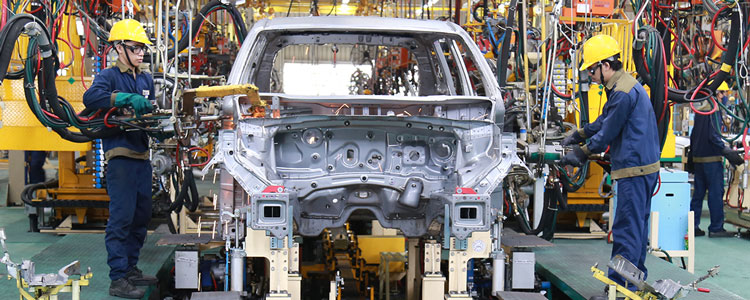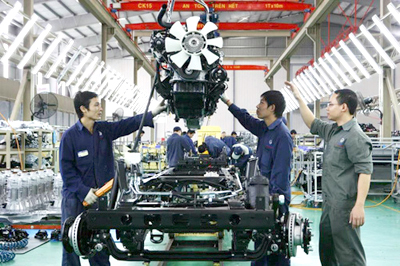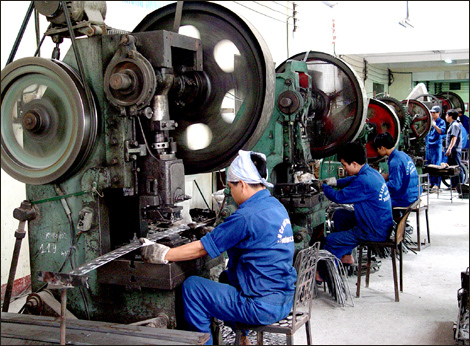Vietnam: Regulation on knowledge requirements for the vocational field of chemical engineering at the intermediate level
This is a notable content of Circular No. 45/2018/TT-BLDTBXH of the Ministry of Labor, War Invalids and Social Affairs of Vietnam regulating the minimum knowledge requirements and capacity standards that learners must achieve upon graduating from intermediate and college levels in the fields of architectural technology, construction works, mechanics, electricity, electronics, telecommunications, and chemistry, effective from February 10, 2019.
.jpg)
Circular No. 45/2018/TT-BLDTBXH of the Ministry of Labor, War Invalids and Social Affairs of Vietnam specifies the minimum knowledge requirements for the vocational field of chemical engineering at the intermediate level as follows:
- The minimum knowledge requirement is 1,700 hours (equivalent to 60 credits, approximately 1.5 years of training according to the annual curriculum).
- Being able to present the use and preservation methods of tools, especially glassware, in chemical laboratories.
- Being able to present the operation procedures for basic laboratory equipment such as analytical balances, precision balances, drying cabinets, furnaces, pH meters, molecular absorption spectrophotometers, and other devices.
- Being able to present the physical and chemical properties, synthesis methods, and applications of certain metals, non-metals, and their compounds; being able to describe the properties of simple organic compounds.
- Being able to list measures to ensure occupational safety, prevention, and reduction of occupational diseases when exposed to chemicals; preventing and responding to chemical incidents.
- Being able to present sampling procedures, sample preservation, sample storage, and processing of basic analysis samples.
- Being able to present the formulation of chemical concentrations such as percentage concentration, molar concentration, equivalent concentration, and other types of concentrations; being able to determine the storage and shelf life of prepared chemicals.
- Being able to explain the meaning of symbols and numbers on chemical labels, being able to distinguish flammable, explosive, corrosive, and toxic chemicals; being able to determine the shelf life of chemicals and incompatible chemical combinations in order to develop appropriate management plans in accordance with the Chemical Law.
- Being able to present the analysis procedures for basic parameters such as salinity, pH, chemical oxygen demand (COD), total nitrogen, and other parameters.
- Being able to list some basic wastewater and water treatment technologies.
- Being able to present the cleaning procedures for basic chemical tools and equipment, especially glassware; being able to evaluate the cleanliness and contamination levels of tools.
- Being able to present basic knowledge of politics, culture, society, law, national defense, security, and physical education as regulated.
View more details at Circular No. 45/2018/TT-BLDTBXH of the Ministry of Labor, War Invalids and Social Affairs of Vietnam, effective from February 10, 2019.
Ty Na
- Key word:
- Circular No. 45/2018/TT-BLDTBXH
- Number of deputy directors of departments in Vietnam in accordance with Decree 45/2025/ND-CP
- Cases ineligible for pardon in Vietnam in 2025
- Decree 50/2025 amending Decree 151/2017 on the management of public assets in Vietnam
- Circular 07/2025 amending Circular 02/2022 on the Law on Environmental Protection in Vietnam
- Adjustment to the organizational structure of the Ministry of Health of Vietnam: Certain agencies are no longer listed in the organizational structure
- Vietnam aims to welcome 22-23 million international tourists in Vietnam in 2025
-

- Vietnam’s Circular 45: Regulations regarding the ...
- 10:32, 07/01/2019
-

- Vietnam’s Circular 45: Regulations on the skills ...
- 15:15, 06/01/2019
-

- Vietnam: Regulations on the minimum knowledge ...
- 15:06, 06/01/2019
-

- Vietnam’s regulations on the minimum knowledge ...
- 15:00, 06/01/2019
-

- Vietnam’s Circular 45: Regulating 03 requirements ...
- 14:45, 06/01/2019
-

- Notable new policies of Vietnam effective as of ...
- 16:26, 11/04/2025
-
.Medium.png)
- Notable documents of Vietnam in the previous week ...
- 16:21, 11/04/2025
-
.Medium.png)
- Notable documents of Vietnam in the previous week ...
- 16:11, 02/04/2025
-
.Medium.png)
- Notable new policies of Vietnam to be effective ...
- 16:04, 02/04/2025
-
.Medium.png)
- Notable new policies of Vietnam effective from ...
- 14:51, 21/03/2025
 Article table of contents
Article table of contents
